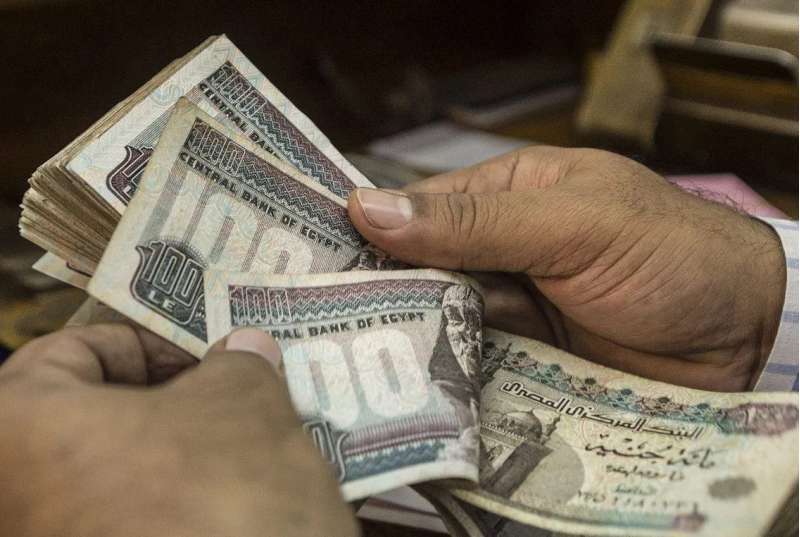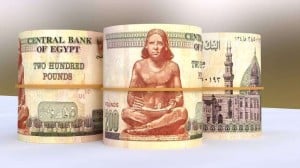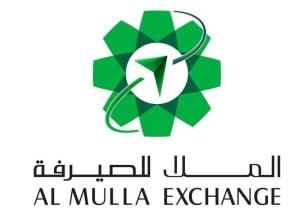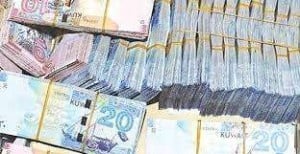Latest News
- Checdking's$with Special"s & Characters#update
- Testing New's To Check's Utf "issue"#update
- Palestine Full UN Entry Backed By Kuwait
- Expatriate Clicks On Link, Loses All Savings
- Kuwait Weekend Weather: Hot Weather And Scattered Rain
- Former MP Tabtabaie Goes To Trial On May 20
- Missing Algerian Man For 25 Years Found And Held Captive By Neig...
- Citizen Detained For Alleged Involvement With A Banned Group
- Kuwait And Ethiopia To Sign MoU For Domestic Workers Recruitment
- Service Bureau Announces Training Plans For Employees And Gradua...
- Filipino Worker Remittances Decline In Kuwait
- Health Ministry Reaffirms Commitment To Modernizing Healthcare S...
Kuwait Sells Egyptian Pounds For 10 Percent Less Than Their Value

A few days ago, Bloomberg Agency said that the largest banks in the world had come to the conclusion that Cairo needed to weaken its currency once more due to the mounting pressure on the Egyptian economy.
The agency cited analyses from Deutsche Bank, Goldman Sachs, and Citigroup that found the Egyptian currency to be overvalued despite a devaluation of more than 15% in March. Deutsche Bank and Goldman Sachs found the pound to be overvalued by 10%, while Citigroup found the pound to be undervalued by 5%, according to a local Arabic daily. The sources emphasized that Cairo's quest of a fresh loan from the International Monetary Fund has made additional currency flexibility necessary.
According to experts, as long as convertible foreign currencies are available, the black market for the currencies of nations like Egypt that have a fixed or partially floating exchange rate with the dollar typically survives.They claimed that despite open discussion about Egypt's need to pay roughly $30 billion within months and the lack of convincing evidence indicating the prospect of payback thus far, the reduction in cash flows from foreign currency is currently driving the depreciation of the pound.
The price of the pound on the black market recently increased by another double, but it still costs about 1.5 Kuwaiti dinars less than it does at the cheapest exchange companies, which at the same time transferred money at a rate of 16.2 dinars per thousand pounds, representing a 10% price reduction.
When they finally transferred their regular monthly payments to their families and related instalments that were owed to them, a group of traditional remittance dealers, whose opinions were solicited by the daily in this regard, reported that what they called remittance dealers offered them to implement them at very different prices, whether when compared to official prices or when measured at a cost. their previous transfer.
According to them, they finally received a better deal than what was being provided to them in the official market, receiving between 1.4 and 1.5 dinars for every thousand pounds as opposed to the quarter and a half dinars they had been getting for weeks. In addition to paying between half a dinar and a dinar for each transfer ranging from one thousand to five thousand pounds under the name of the home delivery bill, they noted that they were paying remittance traders the same official exchange rate months earlier, indicating that something had changed recently by lowering the value of the exchange rate on the black market by about half a dinar in comparison to the official market, to finally arrive at the final exchange rate of one dinar.
Specifically since the Egyptian central bank floated the currency, they reported that the black market for the Egyptian pound in Kuwait is humming with activity after being restricted for many years. They also noted that it was observed in the recent period that the activity of remittances to Egypt by individual traders in the market has increased. The exchange companies started giving reduced pricing after learning about the underground market or so-called under-economy of the pound, which cost them some of their market share.
It was noted that the exchange market experienced a state of stability despite the slight increase in the value of the dollar relative to the Egyptian pound. The acting governor of the Central Bank of Egypt, Hassan Abdullah, continued his meetings, which included a number of ministers and prominent officials in the Egyptian government, in addition to officials of local banks.
Trending News
-
 Ministry Systems Hacked, Electricity Bills Altered
11 May 2024
Ministry Systems Hacked, Electricity Bills Altered
11 May 2024 -
 Kuwait Unveils Monumental Solar Energy Project For...
06 May 2024
Kuwait Unveils Monumental Solar Energy Project For...
06 May 2024 -
 Expatriates Caught On Video Stealing Electricity W...
11 May 2024
Expatriates Caught On Video Stealing Electricity W...
11 May 2024 -
 Team To Inspect New Airport's Solar Panel Installa...
12 May 2024
Team To Inspect New Airport's Solar Panel Installa...
12 May 2024 -
 Gulf Electrical Interconnection Project Will Boost...
04 May 2024
Gulf Electrical Interconnection Project Will Boost...
04 May 2024 -
 Issuing Work Permits Based On Academic Certificate...
07 May 2024
Issuing Work Permits Based On Academic Certificate...
07 May 2024 -
 Kuwait Banks Seek Clarity From Central Bank On Cit...
04 May 2024
Kuwait Banks Seek Clarity From Central Bank On Cit...
04 May 2024 -
 Kuwait Cracks Down On Bachelors
02 May 2024
Kuwait Cracks Down On Bachelors
02 May 2024 -
 Eid Al-Adha Holiday In Kuwait: Potential 9-Day Bre...
15 May 2024
Eid Al-Adha Holiday In Kuwait: Potential 9-Day Bre...
15 May 2024 -
 Kuwait Organizes 30 Events To Protect Children Fro...
04 May 2024
Kuwait Organizes 30 Events To Protect Children Fro...
04 May 2024











Comments Post Comment